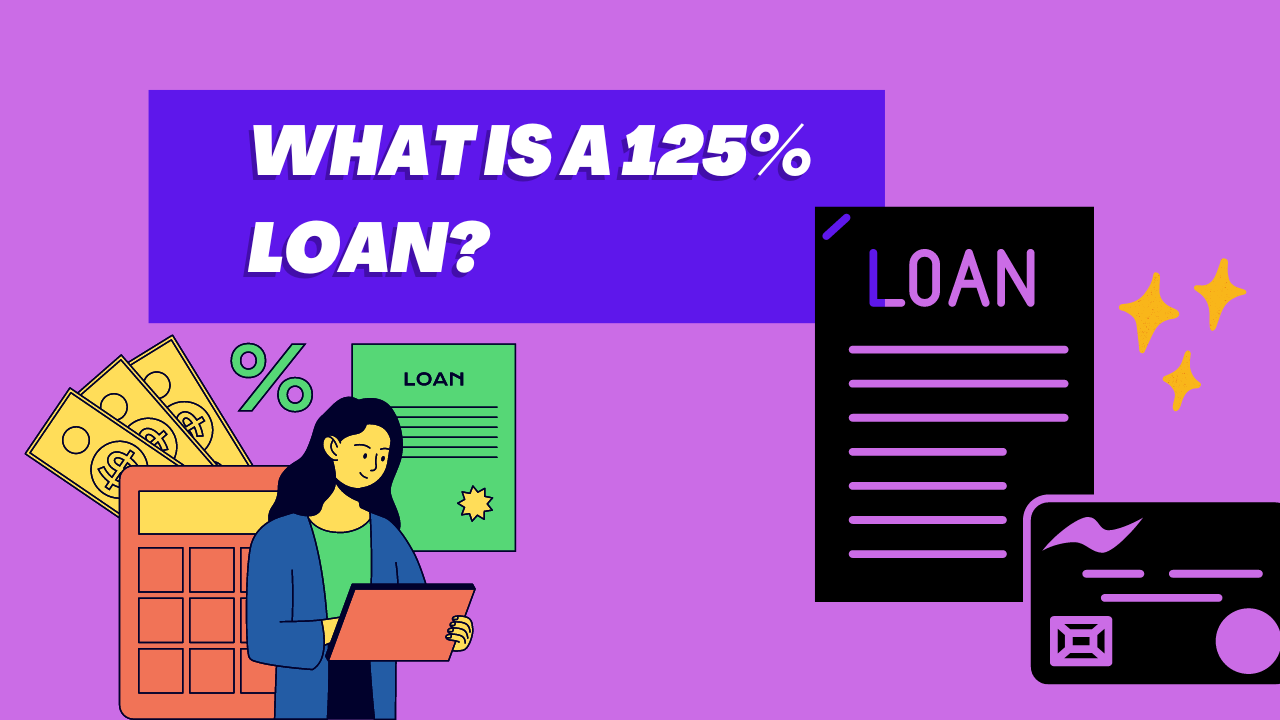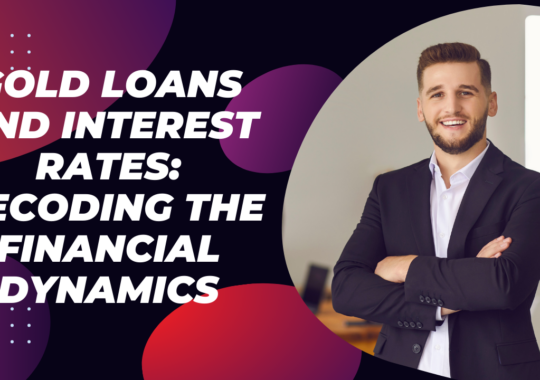If you’re seeking a new home or considering refinancing your current mortgage, you might have encountered the phrase “125% loan.” So what does it mean? To put it simply, a 125% loan is a mortgage type that enables you to borrow an amount of up to 125% of your home’s value.

Initially, this may appear to be a remarkably benevolent proposal; however, there’s a hitch. Generally, these loans entail higher interest rates and charges than standard mortgages, and they’re typically restricted to borrowers with outstanding credit scores. Furthermore, if your home’s value declines, you may wind up owing more on your mortgage than the actual worth of your property.
Despite the risks involved, 125% loans can be an attractive option for borrowers who need to finance home improvements, consolidate debt, or cover other major expenses. In this article, we’ll take a closer look at how these loans work, who they’re best suited for, and the potential pitfalls you need to be aware of before taking out this type of loan. So, let’s dive in!
What is a 125% Loan?
A 125% loan is a mortgage variation that authorizes borrowers to obtain up to 125% of their home’s value. To provide an instance, if your home’s value is $100,000, you may have the potential to borrow up to $125,000 through a 125% loan. This loan category is frequently employed for home upgrades, debt amalgamation, or other significant outlays.
How Does a 125% Loan Work?
A 125% loan works by using your home’s equity as collateral. Equity is the difference between the current value of your home and the outstanding balance on your mortgage. With a 125% loan, you’re essentially borrowing against your home’s equity and taking out a second mortgage.
The lender will assess the value of your home and determine how much you can borrow based on the 125% limit. Keep in mind that the interest rate on a 125% loan is typically higher than a traditional mortgage, and you’ll also be required to pay additional fees and closing costs.
Who is Eligible for a 125% Loan?
125% loans are commonly solely accessible to borrowers with impressive credit scores and a low debt-to-income ratio. The lender will additionally factor in elements like your income, employment past, and your home’s worth. If you possess a substandard credit history or a high debt-to-income ratio, you might not qualify for a 125% loan.
Pros and Cons of a 125% Loan
Pros:
- A 125% loan can provide a source of funding for home improvements, debt consolidation, or other major expenses.
- The loan is secured by your home’s equity, which may result in a lower interest rate than other types of loans.
- You can potentially borrow more than the value of your home, which can be helpful if you need a large amount of money.
Cons:
- The interest rate on a 125% loan is typically higher than a traditional mortgage.
- You’ll be required to pay additional fees and closing costs.
- If the value of your home decreases, you could end up owing more on your mortgage than your home is worth.
- 125% loans are only available to borrowers with excellent credit scores and a low debt-to-income ratio.
Is a 125% Loan Right for You?
Obtaining a 125% loan could be beneficial for homeowners requiring funding for significant expenses, but it’s crucial to thoroughly assess the possible advantages and drawbacks. Prior to applying for a 125% loan, carefully evaluate your financial circumstances and the potential influence on your monthly mortgage payments.
If your credit history is inadequate or your debt-to-income ratio is high, qualifying for a 125% loan may not be feasible. In such circumstances, it might be advisable to consider other loan alternatives or explore other funding options for your expenses.
Also read:
6 Ways on How to Choose the Best Personal Loan
Is It a Good Idea to Get a Personal Loan for Your Marriage?
Running Out of Funds? Apply for Business Loans at Lower Interest Rates
What is Amortized Loan? How Does it Work, What are Loan Types & Example?
FAQs
How do I apply for a 125% loan?
To request a 125% loan, you must collaborate with a lender that provides this specific mortgage category. You will ordinarily be required to furnish details pertaining to your income, credit history, and your home’s worth.
Can I refinance a 125% loan?
It is feasible to refinance a 125% loan, but eligibility for a conventional mortgage refinance would typically demand a decent credit score and equity in your home. Otherwise, you could consider refinancing with another 125% loan or another loan variant that satisfies your requirements.
What are the benefits of a 125% loan?
The primary advantage of obtaining a 125% loan is that it can provide funding for significant expenses that might be challenging to pay for upfront. Moreover, qualifying for a 125% loan may be more accessible than other loan types, given that they don’t mandate as much home equity.
Conclusion
To sum up, a 125% loan could be an appealing choice for homeowners who require funding for significant expenditures like consolidating debt or home renovations. Such a loan provides the possibility of borrowing more than the home’s value, which can be a viable funding solution for major expenses.
Notwithstanding, before opting for a 125% loan, it’s essential to weigh the potential pros and cons carefully. These loans typically impose higher interest rates and fees than conventional mortgages, leading to elevated monthly payments.
Furthermore, if the value of your home decreases, you could end up owing more on your mortgage than your home is worth, which could put you in a precarious financial situation.
If you’re contemplating a 125% loan, it’s vital to compare interest rates and terms among different lenders. Ensure that you have a complete understanding of all the costs and fees connected with the loan, and scrutinize the terms and conditions thoroughly before agreeing to them.
Moreover, it’s advisable to explore alternative means of financing your expenses, such as personal loans, credit cards, or home equity loans. These options may offer lower interest rates and fees, depending on your financial situation and credit history.
In conclusion, while a 125% loan can be a useful tool for homeowners, it’s essential to approach this type of loan with caution and carefully weigh the potential risks and benefits. By doing your research and exploring all your options, you can make an informed decision that best meets your financial needs and goals.



